Select Language
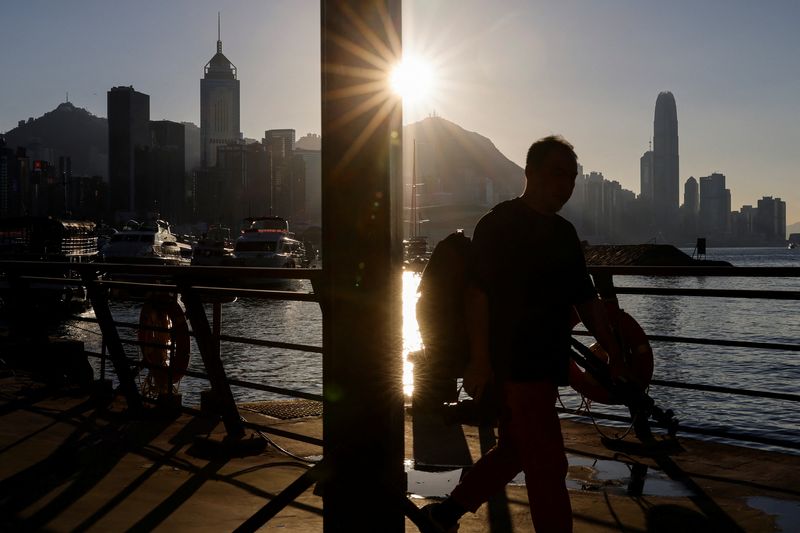
By Xie Yu
HONG KONG (Reuters) - Hong Kong investment products such as insurance and high-yield time deposits are seeing resurgent demand from wealthy Chinese who are aiming to shield returns from a domestic economic and property sector downturn and also a weaker currency.
The trend became evident last year but has accelerated in recent months after China relaxed investment rules for the 'wealth connect' programme in February, Hong Kong wealth managers said.
It is sparking a scramble among financial firms in Hong Kong to seize the opportunity and should help the city burnish its status as a wealth hub that has been hit in recent years by pro-democracy protests, Beijing's tighter control, and geopolitical tensions.
Those factors had pushed clients and wealth managers to foray into or expand in rival Singapore.
"There are about 45 million affluent individuals in China, and increasingly they want more international exposure, education, and protection," said Maggie Ng, HSBC's Hong Kong head of wealth and personal banking.
"There is an increasing demand to manage wealth outside of China."
Launched in late 2021, 'wealth connect' allows residents of nine cities in the southern province of Guangdong, which borders Hong Kong, to buy investment products sold by banks in Hong Kong and Macau, while allowing residents of the two offshore centres to do the same in the world's second-largest economy.
Under the programme, investments by mainland investors into Hong Kong and Macau hit a record monthly high of 13 billion yuan ($1.8 billion) in March, up nearly eight times from February, data from the Chinese central bank showed.
Inflows in April grew 70.5% from the preceding month to 22.3 billion yuan, the data showed, while northbound investments in April by Hong Kong and Macau residents were just 14 million yuan, largely unchanged since the programme was launched.
HSBC, a leading wealth manager in Hong Kong, saw new account openings in the city rise by more than three times in 2023 from the pre-COVID level in 2019, driven mainly by Chinese mainland retail wealth clients, said Ng.
The strong momentum has continued in the first quarter of this year, she said, declining to give details.
Apart from the mass affluent who are utilising the cross-border investment channels, ultra rich people from China and Southeast Asia are also exploring their options in Hong Kong, according to executives at global wealth managers.
"If we look at the inquires (from potential family office clients) that we got last year versus the previous year, we're talking about an 85% increase," said L.H. Koh, head of global family and institutional wealth APAC, at UBS.
More than 60% of the inquiries are about setting up family office type entities in Hong Kong by mainly Chinese clients, he said, adding that the trend has continued this year.
'SITTING ON CASH'
While there are still tight capital controls in China, with an individual allowed to remit a maximum $50,000 per year, the tripling of the investment cap to 3 million yuan under the 'wealth connect' programme in February has bolstered outflows.
China presumably is less worried about outflows under the programme because the investments are eventually required to be remitted back to the country.
Wealth managers in Hong Kong are pushing the authorities to further relax the investment scheme to meet the demand of richer clients to move larger sums to Hong Kong, industry executives said.
The Hong Kong Monetary Authority would "continue to explore further enhancement measures in due course, taking into account the industry's feedback as appropriate", the city's de-facto central bank said in a statement to Reuters.
To capitalise on the momentum, some banks in Hong Kong have started offering as much as 10% a year interest rates on short-duration term deposits as part of the wealth link programme compared to about 2% offered by the banks in the mainland.
Besides banks, Hong Kong-based insurers have also seen a surge in demand from mainland customers since border controls previously installed to curb the spread of COVID were lifted in early 2023.
Horace Yep, Citigroup's private banking head of Hong Kong and Greater Bay Area, said the bank saw record new account openings in Hong Kong in 2023, and the momentum remained strong this year, thanks to the demand from mainland Chinese clients.
The surge in demand comes against the backdrop of Chinese mainland investors facing limited options to park their cash at home, as yields of long-dated bonds have dropped to record lows.
China's currency is hovering around its weakest since 2008. And stocks and property have seen returns plunging.
"Many mainland people are now sitting on cash," said 51-year-old Ms. Wang, owner of an internet firm in Shenzhen whose bets on opaque investment products at home soured after the collapse of a leading shadow bank late last year.
Wang said she has since parked her money in a current account in the mainland, and is studying the 'wealth connect' programme now.
($1 = 7.2552 Chinese yuan renminbi)
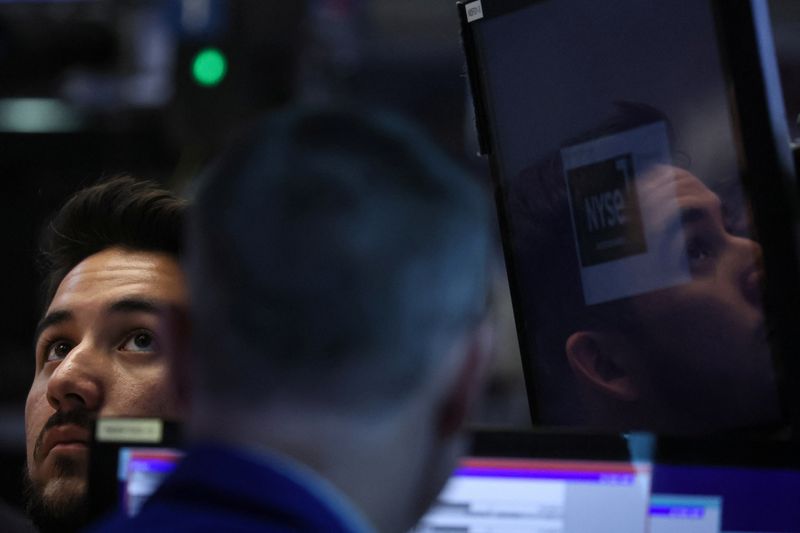
Investing.com -- U.S. retail sales data will be scrutinized as investors try to assess the impact of higher interest rates on the economy. Investors will also get a chance to hear from several Federal Reserve policymakers during the week. The Bank of England is to meet, along with central banks in Switzerland, Norway and Australia. Here’s your look at what's happening in markets for the week ahead.
1. U.S. retail sales, Fedspeak
Investors trying to get a handle on the strength of the U.S. economy - and the timing of Federal Reserve rate cuts which are now not expected before September - will be looking closely at Tuesday’s retail sales data for May.
Economists are expecting retail sales to have risen 0.3%, after they were unexpectedly flat in April.
Consumer spending is an area of focus for Wall Street as investors seek to gauge the impact of higher interest rates on the economy.
Last week the Fed reiterated that it needs to see more evidence of cooling inflation before lowering borrowing costs.
Investors will also get the chance to hear from several Fed speakers during the week, including New York Fed President John Williams, Minneapolis Fed President Neel Kashkari, San Francisco Fed head Mary Daly and Richmond Fed head Thomas Barkin.
2. China data deluge
China is to release a deluge of economic data this week as investors look for signs that the recovery in the world’s second largest economy is gaining momentum, particularly with the beleaguered property sector continuing to weigh on the outlook.
Data on China's home prices is due on Monday - the first such release after Beijing announced "historic" steps to stabilise the property market last month, though to limited effect so far. May data on industrial output, the urban unemployment rate and retail sales are all due too, with hopes the latter could point to a stronger uptick after April's disappointment.
Still, recent data continues to underscore the need for further stimulus from policymakers with the loan prime rate decision due on Thursday.
Souring trade relations add to the woes, with Europe set to slap extra duties on imported Chinese electric cars.
3. Bank of England meeting
The BoE is to hold its latest policy setting meeting on Thursday and will likely dash any hopes the ruling Conservative party had of a pre-July 4 election rate cut. Markets now expect easing later rather than sooner, pricing a roughly 40% chance of an August quarter point move and a 70% chance in September with pay and services inflation sticky.
The U.K. is to release May inflation data a day before the BoE meets, with the consumer price index expected to come down to the bank’s 2% target for the first time in nearly three years.
But underlying inflation is expected to remain above 3% and with the election campaign in full swing the BoE is seen holding for now.
Switzerland and Norway are also to hold central bank meetings on Thursday. The SNB kicked off rate cuts in March and another cut is seen as 50-50 after steady March inflation data. No change is expected from Norway’s central bank. Meanwhile, Australia's central bank meets on Tuesday but is not expected to ease for some time.
4. Eurozone
The Eurozone is to release the latest set of purchasing manager indexes for June on Friday, with markets watchers on the lookout for signs that the economic recovery in the bloc is gaining momentum.
European Central Bank officials due to speak during the week include President Christine Lagarde and Chief Economist Philip Lane on Monday, and Vice President Luis de Guindos on Tuesday.
Lagarde dodged a question about turmoil in French financial markets on Friday, merely saying the ECB would deliver on its inflation target.
French markets endured another brutal sell-off on Friday as investors cut their positions ahead of a snap election that might give a majority to the far right.
French Finance Minister Bruno Le Maire warned that the euro zone's second-biggest economy was at risk of a financial crisis if the far right won the parliamentary election in the coming weeks.
5. Oil prices
Brent and the U.S. benchmark gained nearly 4% last week, the highest weekly rise in percentage terms since April, buoyed by forecasts for solid demand for crude oil and fuel in 2024.
The U.S. Energy Information Administration (EIA) upgraded its oil demand growth estimate for 2024 slightly, and the Organization of the Petroleum Exporting Countries (OPEC) stuck to a forecast for relatively strong growth of 2.2 million barrels a day (bpd).
The International Energy Agency (IEA) meanwhile cut its demand growth forecast to under 1 million bpd.
However, all three forecasters predicted a supply deficit at least until the beginning of winter, Commerzbank analysts pointed out.
"In view of the still uncertain economic outlook for the major economic regions, a further price increase is not to be expected for the time being," said Commerzbank analyst Barbara Lambrecht.
--Reuters contributed to this report

HANOI (Reuters) -Vietnam's Finance Ministry has proposed to hike a special consumption tax on alcoholic drinks to 100% by 2030, the ministry said, a move that may further hurt the country's beverage industry.
Under the draft proposal which is pending lawmakers' approval, the special consumption tax on beer and strong liquor will be raised to 70%-80% by 2026 and gradually increase it to 90%-100% in 2030, compared with the current 65%.
"Alcoholic drinks and beer prices will increase by 20% in 2026, compared with 2025," the finance ministry said in the proposal, adding that prices would continue to increase by 2%-3%, depending on inflation.
"Levying high tax rates is necessary to help reduce consumption of alcoholic drinks," it added.
Vietnam's beer industry, dominated by four major brands -Dutch Heineken (AS:HEIN), Danish Carlsberg (CSE:CARLb) and local Sabeco and Habeco - has already been hit by the country's strict drink and driving law, under which the alcohol content limit for drivers is zero since 2019.
Heineken Vietnam Brewery, the country's beer market leader with a 37.6% share, recorded a 24% decline in total consumption last year, according to a May report from FPT Securities.
Sabeco, accounting for 34.4% of the market, also posted a 12.6% fall in consumption. On the contrary, Carlsberg's domestic consumption rose by 8%, it added.
Last year, the beer industry's revenue decreased 11% and profits decreased by 23%, according to estimations of the Beer - Alcohol - Beverage Association.
Shares in Sabeco fell by 3.66% on Friday morning after the ministry's proposal.
A Sabeco spokesperson declined to comment but said it would contribute the company's opinion to the Beer - Alcohol - Beverage Association as a member of the Association.
Carlsberg and Heneiken did not immediately respond to Rueters' requests for comment.
The finance ministry also proposed a hike in special consumption tax on soft drinks and cigarettes.
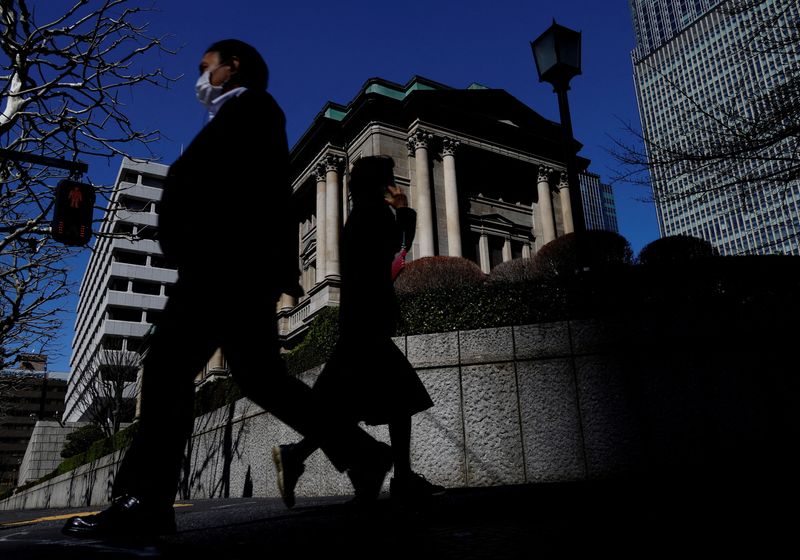
TOKYO (Reuters) - The Bank of Japan kept interest rates unchanged on Friday but said it would trim bond buying in the future to allow long-term interest rates to move more.
At its two-day policy meeting, the central bank said it would continue to buy government bonds at the current pace. But it decided to come up with a specific plan to trim purchases for the next one to two years, at a subsequent policy-setting meeting in July.
As widely expected, the BOJ maintained its short-term interest rate target in a range of 0-0.1% in a unanimous vote.
Governor Kazuo Ueda is expected to hold a news conference to brief on the decision at 3:30 p.m. (0630 GMT).
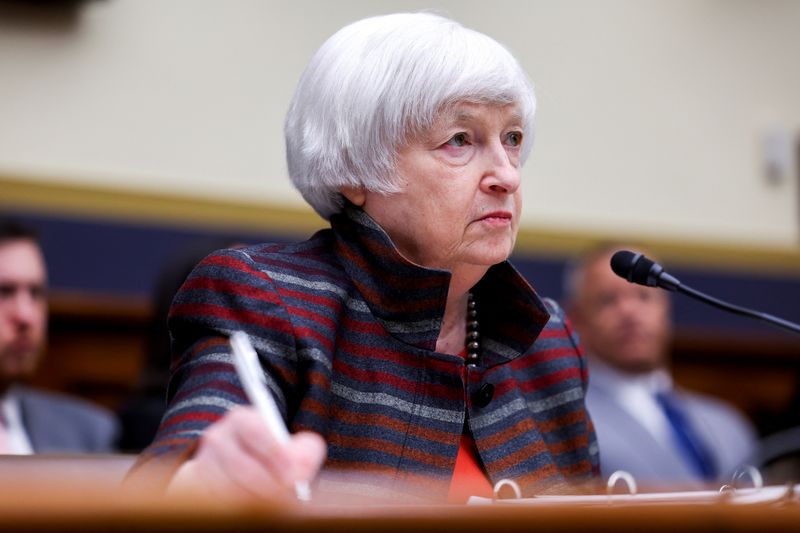
By Michael S. Derby and David Lawder
NEW YORK/WASHINGTON (Reuters) -U.S. Treasury Secretary Janet Yellen said on Thursday that U.S. public investments that attract private capital are crucial to promote sustainable and inclusive growth over the long term, but warned that China's model of massive state industrial subsidies were unacceptable to the world.
Yellen said in prepared remarks to the Economic Club of New York that the traditional Republican model of "supply-side economics" relies too heavily on tax cuts to spur investment and has failed to benefit enough workers.
Yellen's speech to top business executives and Wall Street leaders marked a rebuttal of sorts to a presentation that Republican presidential candidate Donald Trump delivered on his economic vision to top U.S. CEOs in Washington, including Apple (NASDAQ:AAPL) CEO Tim Cook and JP Morgan Chase (NYSE:JPM) CEO Jamie Dimon.
The Business Roundtable event in Washington also was expected to feature a presentation by White House Chief of Staff Jeff Zients, representing President Joe Biden, who is attending a summit of G7 leaders in Italy.
Trump's campaign has been light on specifics about his economic plans, but his message to CEOs emphasized tax cuts for businesses and reduced business regulation, according to Trump economic adviser Stephen Moore.
Trump has pledged to continue tax cuts that he signed into law in 2017 and has said he wants to offer tax relief to the middle class, reduce regulations and expand fossil-fuel energy production while reversing Biden's clean energy initiatives. In Nevada on Sunday, he floated a plan to stop taxing service workers' tip income.
"We have learned through experience that heavy-handed central planning through government dictates is not a sustainable economic strategy," Yellen said in prepared remarks. "But neither is traditional supply-side economics, which ignores the importance of public infrastructure, education and workforce training and government-supported basic research."
Tax cuts for the wealthy and deregulation have not fueled "growth and prosperity for the nation at large," she added.
Yellen highlighted the Biden administration's major legislative initiatives to invest in the U.S. economy with a 2021 infrastructure law and semiconductor investments and clean energy tax credits passed in 2022.
These included provisions to train workers and have resulted in $850 billion worth of new private-sector manufacturing investments in the U.S. since Biden took office in 2021, she said.
"It's been clear to President Biden and me that our economic strategy cannot be driven by either the public or private sector alone," she said. The doctrine she calls "modern supply-side economics" requires public interventions to "create a supportive environment for business and fuel private sector investments."
She said that a strong U.S. economy was helping to drive global growth, with falling inflation and high investment returns, and was optimistic that these trends would continue.
CHINESE SUBSIDIES
Yellen also sought to contrast the Biden approach with that of China, saying that excessive government subsidies for strategic industries have fueled excess manufacturing capacity far above weak domestic demand. A flood of exports resulting from this overinvestment now threatens jobs around the world and is leading to new trade barriers in the U.S. and elsewhere.
"China cannot assume that the rest of the world will rapidly absorb huge quantities of excess production to the detriment of domestic industries in other countries," Yellen said.
"If China continues on this path, I fear that its policies may interfere significantly with our efforts to build a healthy economic relationship," Yellen said. But she repeated her view that decoupling the world's two largest economies would be detrimental to U.S. interests.
Asked by reporters later about the possibility the Treasury could impose secondary sanctions on a Chinese bank for violating U.S. sanctions on Russia through processing transactions that aid Moscow's war production, Yellen said she believed the largest Chinese banks were wary of such deals.
"I’m certainly not going to say that we would not be willing to designate a large bank if we saw systematic violations,” Yellen said, adding: "The largest banks in China really, really value their correspondent banking relations."
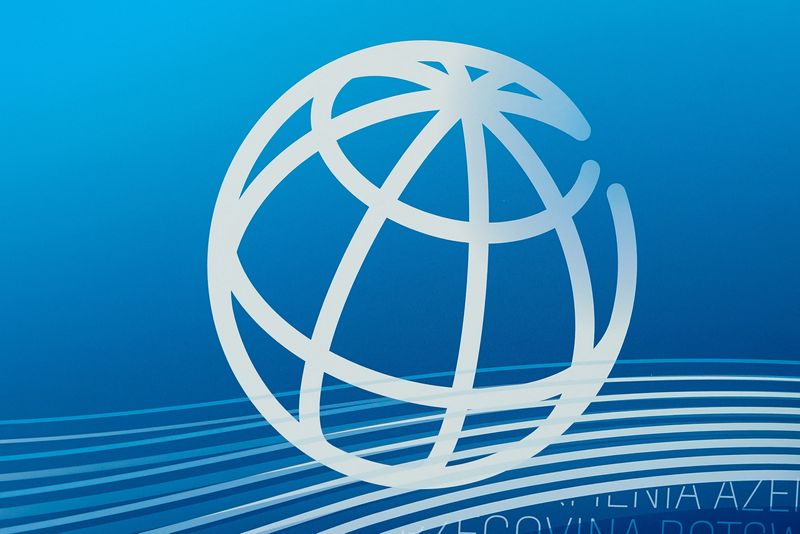
By Ope Adetayo
ABUJA (Reuters) - The World Bank has approved a total of $2.25 billion loan for Nigeria to help stabilise its economy following reforms and scale up support for the poor, it said in a statement on Thursday.
In April, Finance Minister Wale Edun said Nigeria was seeking up to $2.25 billion in World Bank loans and expects the bank's board to approve the request in June.
Nigeria President Bola Tinubu last year in May initiated the country's boldest reforms in decades, scrapping a popular but costly petrol subsidy and sharply devaluing the currency twice to try to kick-start growth. But the moves stoked inflation and worsened a cost of living crisis.
With the devaluation, the International Monetary Fund forecast that fuel subsidies could cost up to 3% of GDP this year as the increases in pump prices have not kept up with their dollar cost.
Labour unions also have been pressuring Tinubu to roll back reforms.
The World Bank said it approved a $1.5 billion loan to back Nigeria's reforms and another $750 million to accelerate revenue mobilisation.
It added that Nigeria has embarked on critical reforms to address economic distortions and strengthen its fiscal outlook, saying that the country has taken "initial critical steps to restore macroeconomic stability, boost revenues, and create the conditions to reignite growth and poverty reduction have been taken."
The loan will support Nigeria's effort to raise non-oil revenues and promote fiscal sustainability, which will help the West African nation deliver quality public services, the World Bank said.
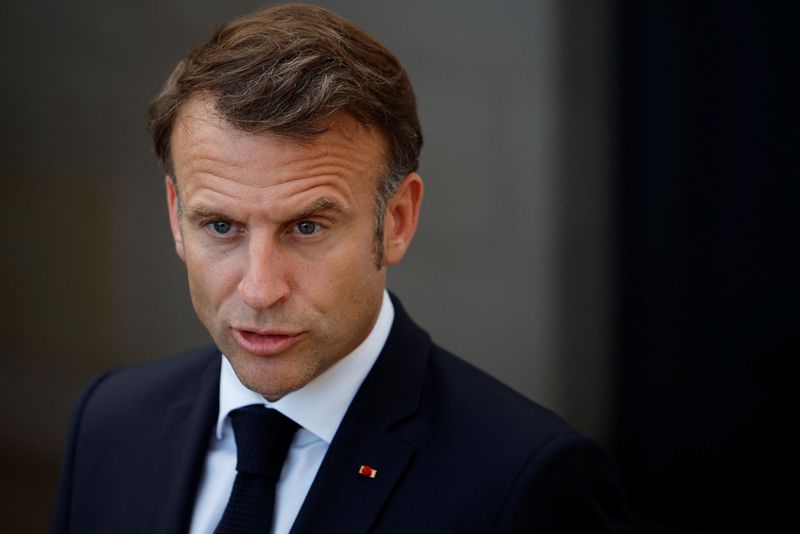
BORGO EGNAZIA, Italy (Reuters) - The United States, France and Israel have agreed to work together to step up efforts to push forward a roadmap presented by Paris earlier this year to defuse tensions between Hezbollah and Israel, French President Emmanuel Macron said on Thursday.
France and the United States have in recent months worked to try to defuse tensions with Paris submitting written proposals to both sides aimed at stopping worsening exchanges between them on the border between Lebanon and Israel.
"With the United States we agreed on the principle of a trilateral (contact group), Israel, the United States and France to advance on the roadmap that we proposed and we will do the same with the Lebanese authorities," Macron told reporters on the sidelines of the G7 summit in Italy.
Hezbollah, which has ruled out ending hostilities until there is a ceasefire between Israel and Islamist militant group Hamas in Gaza, said it had launched rockets and weaponised drones at nine Israeli military sites in a coordinated attack on Thursday, ramping up hostilities on Lebanon's southern border for the second consecutive day.
A senior French official said there was an urgency for the United States and France to step up their efforts given the dangerous escalation.
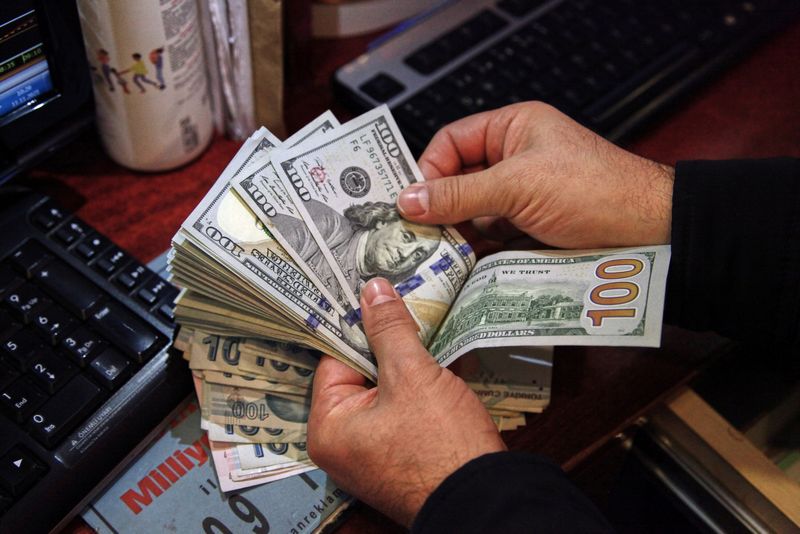
By Howard Schneider and Ann Saphir
WASHINGTON (Reuters) -The Federal Reserve held interest rates steady on Wednesday and pushed out the start of rate cuts to perhaps as late as December as policymakers sketched out their view of an economy that remains virtually unchanged across its major dimensions for years to come.
With growth and unemployment lodged at levels better than the U.S. central bank considers sustainable in the long run, Fed Chair Jerome Powell said policymakers were content to leave rates where they are until the economy sends a clear signal that something else is needed - through either a more convincing decline in price pressures or a jump in the unemployment rate.
So far, Powell noted in a press conference after the end of a two-day policy meeting, inflation had fallen without a major blow to the economy, and he said there was no reason to think that can't go on.
"These dynamics can continue as long as they continue," Powell said. "We've got a good strong labor market. We think we've been making progress toward the price stability goal. We're asking ... is our policy stance about right? And we think yes, it's about right."
The result is the Fed accepting a slow expected decline in inflation back towards its 2% target, with the central bank's preferred inflation measure - the personal consumption expenditures (PCE) price index - virtually unchanged at the end of this year from its current level and the number of rate cuts held to a single quarter-percentage-point reduction.
Those rate reductions are projected to gather pace next year, with Powell deferring on the timing.
"We don't make decisions about future meetings until we get there," he said. "Really, it's going to be not just the inflation readings. It's going to be the totality of the data, what's happening in the labor market, what's happening with the balance of risks, what's happening with the forecasts, what's happening with growth. You're looking at all of that."
Inflation data published hours before the release of the policy statement and updated projections showed the consumer price index (CPI) rose not at all on a month-to-month basis in May, causing some analysts to argue the latest projections were already "stale."
Powell's characterization of the inflation projections as "kind of conservative" indicated the Fed chief was "keeping the door very much open to a September cut" if inflation continues to weaken, said Krishna Guha, vice chairman of Evercore ISI.
Investors in contracts tied to the Fed's benchmark interest rate largely kept bets intact that the central bank would approve quarter-percentage-point reductions in September and December.
Powell himself said the decision about the rate path was a "close call" for many policymakers, and that to some degree the Fed had merely traded an earlier start to rate reductions this year by tacking an additional anticipated cut onto 2025.
Still, he called the decision to start policy easing "consequential," and the drop in expectations for this year completes a broad swing in sentiment from just six months ago when policymakers in their December 2023 forecasts envisioned an imminent kickoff to three years of steady rate reductions.
Under the current projections, absent a surprise in upcoming inflation or jobs data, the cuts would likely not begin until December, moving the Fed's decision out of the Nov. 5 U.S. presidential election cycle.
HIGHER NEUTRAL RATE
The policy statement issued on Wednesday combined an acknowledgement of "modest further progress" on inflation in recent months with a restatement of language that rate reductions won't be appropriate until officials have "gained greater confidence" that price pressures will continue to ease.
The PCE price index increased at a 2.7% annual rate in April; the median projected by policymakers for the end of the year is 2.6%, with a full return to the 2% target in 2026.
The weak CPI number for May was "only one reading," Powell said. "When we are (more confident), then we can look at loosening policy."
The S&P 500 and Nasdaq Composite stock indices closed sharply higher on the day, while the U.S. dollar and yields on U.S. Treasuries fell.
"The market cares more than the economy does about whether there are two cuts this year or only one," said Brian Jacobsen, chief economist at Annex Wealth Management. "The Fed is basically rearranging the rate-cut deck chairs" from 2024 to 2025.
The new Fed projections show the economy is still expected to grow at a slightly above-trend 2.1% this year despite a sluggish first quarter, and the unemployment rate will remain at its current 4% through the year.
"Recent indicators suggest that economic activity has continued to expand at a solid pace. Job gains have remained strong, and the unemployment rate has remained low," the Fed said in its statement, which was approved unanimously.
Along with trimming the number of rate cuts expected this year, the new rate projections raised the long-run "neutral" rate needed to keep inflation in check while maintaining steady growth to 2.8% from 2.6%.
The long-run rate has now moved up more than a quarter of percentage point over the Fed's last two sets of projections, a possible sign officials feel inflation will be harder to tame in the future.
Powell said the increase in the long-run rate did not necessarily influence officials' short-run projections for the benchmark interest rate, but noted they were still mulling just how restrictive monetary policy had become.
The Fed raised rates aggressively in 2022 and 2023 to curb inflation that had surged to a 40-year high in the aftermath of the COVID-19 pandemic.
"We're making policy with the economy that we have, with the distortions that we have," Powell said. "The question of how restrictive this policy has become is one that everyone's asking ... I think the evidence is pretty clear. This policy is restrictive and is having the effect we would hope for."

BANGKOK (Reuters) - Thai consumer confidence dropped for a third straight month in May, falling to its lowest level since October last year on concerns over a slow economic recovery and political uncertainty, a survey showed on Thursday.
The consumer index of the University of the Thai Chamber of Commerce fell to 60.5 in May from 62.1 in April, the university said in a statement.
Thai courts will convene on a trio of politically charged cases next week, including one that could potentially lead to the prime minister's dismissal, increasing the prospect of more government instability in the Southeast Asian country.
Consumers were not confident about whether the economy would recover quickly, especially when the current political situation became uncertain, the university said.
However, consumer confidence was likely to improve if the government sped up budget disbursements and helped stimulate an economic recovery in the second half of this year, it said.
The economy grew 1.5% in the first quarter from a year earlier, slowing from 1.7% growth in the prior quarter, lagging regional peers.
The central bank predicts growth of 2.6% this year, after last year's 1.9% expansion.
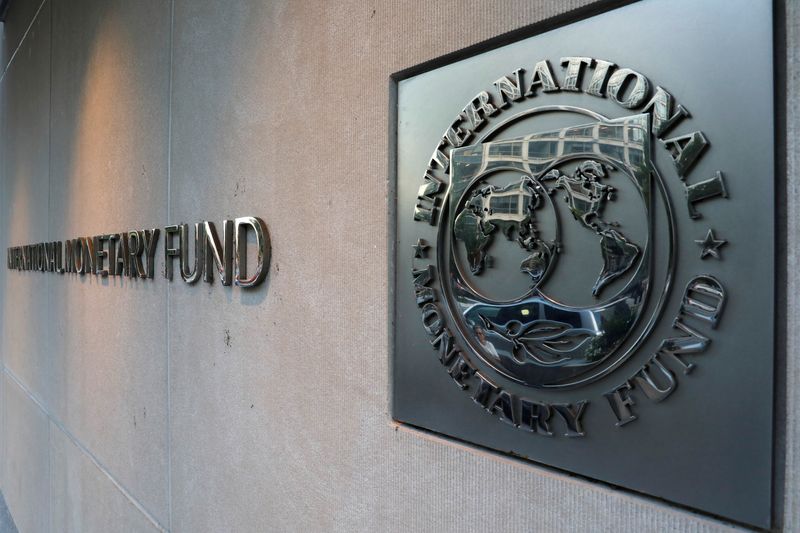
By Uditha Jayasinghe and Kanishka Singh
COLOMBO (Reuters) -The International Monetary Fund (IMF) approved the second review of Sri Lanka's $2.9 billion bailout, but the global lender warned the economy remains vulnerable despite signs of recovery and urged Colombo to do more to restructure a hefty debt burden.
In a statement on Wednesday, the IMF said it will release about $336 million to the crisis-hit country and noted that signs of an economic recovery were emerging.
However, in a note of caution, it said the economy "is still vulnerable and the path to debt sustainability remains knife-edged."
The IMF called for a swift finalization of the Memorandum of Understanding (MoU) with the Official Creditor Committee (OCC), which includes key lenders Japan and India, and final agreements with the Export‑Import Bank of China.
Cash-strapped Sri Lanka plunged into its worst financial crisis in more than seven decades in 2022 after its foreign exchange reserves sank to record lows.
A severe dollar shortage in the country sent inflation soaring to a high of 70%, its currency into freefall and the economy into a sharp 7.3% contraction.
The IMF bailout secured in March last year helped stabilise economic conditions somewhat. The rupee currency has risen 7% in recent months and inflation slowed to 0.9% in May, though demand remains soft and the debt restructuring talks are keeping markets on edge.
Approval of the second review "signifies the continued commitment to our economic recovery and growth which is critical in reinforcing economic stability and resilience," Sri Lanka's State Minister of Finance Shehan Semasinghe wrote on platform X.

